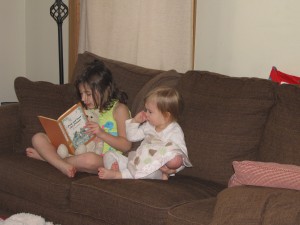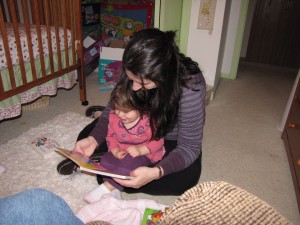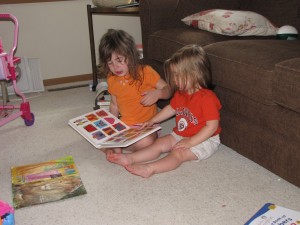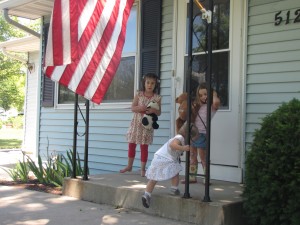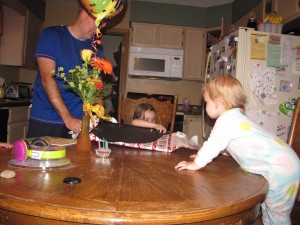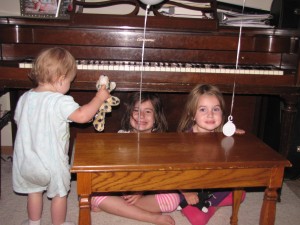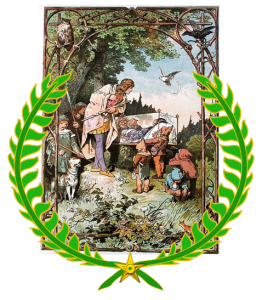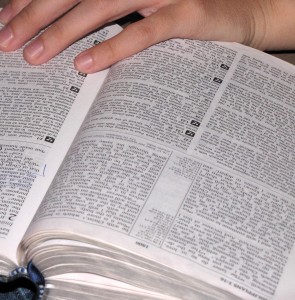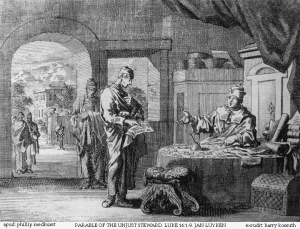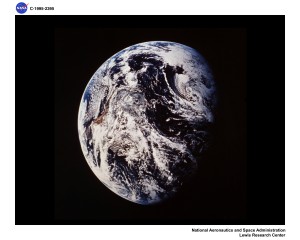We Eat One Another Alive
Why do we eat one another alive?
It happens all the time. Just look at what happens any time a Christian leader is found out or, worse, confesses. Just look at what happens whenever a Christian public figure says something that is outside of our comfort zone. Just look at what happens so many times when someone in our own churches does or says something we don’t agree with.
We talk, we rant, we fill up the air with our words. And our words are not of grace.
It is too easy to speak harshly within the anonymous confines of the internet. We forget at times that those on the receiving end of our arrows are as beloved as we are.
Why do we do it?
Fear, perhaps.
We fear that others will think poorly of us or of our faith if we do not speak out quickly and harshly against whatever was wrong. We fear that we will be viewed as the same if we speak words of love instead of words of condemnation.
We fear, perhaps, that we are the same deep down inside, and we do not want anyone to know the truth.
Yet the irony of it all is that the very One we are trying to defend is the same One who shared meals, shared life with those who made the most public of mistakes.
The irony is that the Bible is crammed full of one another verses…and not one of them mentions devouring one another.
Show kindness and mercy to one another.
Love one another.
Outdo one another in showing honor.
Welcome one another.
Bear with one another.
Be kind to one another.
Forgive one another.
These are just the beginning.
Jesus said that people would know that we follow Him by our love. Too often love is not what we show to the world. I confess that perhaps I would not think very highly of Jesus if all that I knew of Him was what I read on the blogs and Facebook pages of His followers.
May God help us.
May the God of love and grace teach us how to get rid of our motto of We eat one another alive.
May He instead change our hearts to adopt the motto of We never leave a fallen comrade behind.
Art Credits: Lion photo by Juliane Riedl; Christ and Samaritan Woman painting by Henryk Siemiradzki
Be Right or Love the Person?
“Is it more important to be right or to be loving?”
I ask her the question as she stands with her hands on her hips, righteous indignation quivering through every inch of her little body.
It seems an easy question when put in such stark terms, but which of us answers it correctly in each one of our little choices every day?
Certainly not me.
I find myself struggling with whether loving the person or desiring to be right is more important. I wrestle with the decision of whether having the perfect event or loving the person is better. I fight hard against the desire to let my agenda, my task list trump the to-do of loving the person.
Love God. Love people.
It is that simple. It is that hard.
Pride stands in our way. Desire for an experience to be amazing puts up a wall. Need to feel accomplished plants its roots.
Yet it truly is simple. Will we obey our own desires or will we submit ourselves to God?
“To be loving.” The answer barely escapes through her gritted teeth. She doesn’t want that to be the right answer.
I know, my darling. I know. I, too, want a different answer. I, too, want to protect myself, to protect my perceived interests and rights.
The trouble is that when you commit yourself to this God of power and love, you commit to letting Him defend you. Your job is to obey. In this case, that looks like love.
It is making yourself vulnerable in order to love the person. It is making yourself nothing in order to love the person. It is making yourself a servant in order to love the person.
Love God. Love people.
It is that simple. It is that hard.
Belong
I watch my littlest follow her sisters around like a puppy. She is desperate to be big enough to join in with their play. She is willing to try anything to keep up with them and to feel a part of their games and, more importantly, their friendship.
I see myself all too well in her. I, too, find myself following after others with whom I desire friendship. I will do things that I don’t enjoy or participate in too many activities just to feel as though I belong.
I find it hard to understand why I do this, to figure out what lies behind this quiet, desperate feeling. Part of the trouble is that there have been too many occasions of friends drifting away as though I weren’t quite worth the effort. I think, though, that an even bigger part of the trouble is my disbelief of what God has told me, of what He has told all of us.
I don’t truly, deep down inside, believe that I am worth being loved.
If I did, it wouldn’t matter how many friendships ended quietly, I would still be ready once again to make myself vulnerable for another.
I don’t believe that I am valuable and that all I truly need is Him. So I chase after other people, trying to prove my worth to them and to myself. I think that I need other people more than I need the approval of my God.
I forget, you see, that I already belong. I belong to the One who tossed the stars into their orbits and who crafted the sweet violet. I belong and I am worth more to Him than all the birds in the air.
Maybe someday I will do a better job of believing it.
Fairy Tale Truth
I love how much truth can be found in fairy tales and myths. I love that God chooses to give us glimpses of Himself and His Word in the words of storytelling throughout time.
We often view Christianity as rules and laws, as limitations on our freedom. We wonder why God puts so many limits on our fun. I recently experienced a switch of perspective.
I am reading Orthodoxy by G.K. Chesterton. In his book, he points out that in fairy tales, there is always an “if”. You may go to the ball IF you return by midnight. You may marry the princess IF you never let her see a cow.
All the dizzy and colossal things conceded depend on one small thing withheld. All the wild and whirling things that are let loose depend upon one thing that is forbidden. ~ Chesterton
Everything beautiful and glorious that cannot be understood is dependent upon a condition that equally cannot be understood.
In fairy tales, this does not seem unjust. If Cinderella asks her Fairy Godmother why she has to be home by midnight, the Godmother may reply “why should you go to the ball for any amount of time?” If the miller asks “why can’t I let the princess see a cow?” the fairy may reply “why should you get to marry the princess at all?”
Fairy tales never focus on the condition. The condition is so small as to seem irrelevant. The focus is on the dazzling, the wild, the fantastic vision.
We don’t focus on the vision. We focus on the limitation. We wonder why we must not get drunk instead of marveling at the beauty, the deep color, the richness of the wine. We wonder why we must only marry one person instead of living in wonder at the existence of sex.
No restriction on sex seemed so odd and unexpected as sex itself…keeping to one woman is a small price for so much as seeing one woman…It showed, not an exaggerated sensibility to sex, but a curious insensibility to it. A man is a fool who complains that he cannot enter Eden by five gates at once. ~ Chesterton
What a beautiful change of viewpoint! To look not at the limitation but at the wonder of the permission. To not complain about being asked to keep our words pure but to wonder at the startling glory of language. To not gripe of not being allowed to eat all that we desire but to be astonished at the wild and vast expanse of color and taste of food. To look upon the dazzling, wild, fantastic vision.
In Christ, all is made sacred, so search for Him everywhere. Look for Him in the stories and fables, in the myths and fairy tales that you read. You will find Him there.
Art credits: Fairy Tales by Jessie Willcox Smith; Fairy Tale Barnstar by Arman Musikyan; In Fairyland by Richard Doyle; A Fairy Tale by Dorothy M. Wheeler; The Fairy Tale by Walther Firle
When It Is Hard to Believe
I am wrestling with the difficulty of believing God.
I suppose it would be more accurate and honest to admit that really I am wrestling with why I don’t believe God much of the time.
This struggle to believe manifests itself in different ways at various times and seasons in my life, but currently I am noticing it in two particular ways.
One struggle I have is in believing that God truly loves my children.
I know.
When I say it like that, it seems ludicrous. We are talking, after all, about the same God who gave up His only Son so that my children could be with Him forever.
Yet I worry about my babies. I worry about their safety, about whether they will survive to adulthood (although sometimes I think that it might be me who causes them not to survive), about whether they will suffer some horrible trauma along the way. I worry about whether they will learn to love God most of all and whether they will love people. I worry about my children…which means that I am not believing God.
God has promised that He loves my children even more than I do. He has promised that He will do what is best for them and that He will give them what they need. But I still worry. Why?
Part of the trouble is that I don’t trust in what God’s best is. I know that sometimes His best is painful and even when I can trust in that for myself, I often want to protect them. It is truly ridiculous that I would want to protect my children from God, but there it is. Deep down inside, I sometimes believe that I know better than God, that my goals for my children are more important than God’s goals for them.
I don’t know why I wrestle with this. When I state it so plainly, even I can see the foolishness of it. It should be easy to believe. Yet it is not.
The other struggle I currently have is in believing that God’s Spirit will truly guide me through life. I have trouble believing that God is interested in all areas of life. Can I really trust the Holy Spirit to guide me in my parenting? Can I really trust the Holy Spirit to show me the best way to train, disciple, even educate my children? Does God’s Spirit care about a business, a household, a career?
I don’t believe it and so I want to rely on books, on methods, on other people to tell me how to raise and teach my babies. Yet if Jesus is before all things, if all things hold together in Him, and if Jesus sent His Holy Spirit to us to guide us and teach us Jesus’ truth, then He truly is interested in showing me how best to live my life. All aspects of it.
Why is that so difficult to believe, so hard to rely on? It seems like it should be simple. God has never broken a promise; He has proved over and over that His way and His love is best, that His Spirit is faithful to show us truth. I am foolish to doubt the faithfulness of such a God.
Yet I do. I am like the Israelites who refused to believe that God would provide enough manna on the sixth day to provide for the seventh or that He would provide enough harvest bounty in the sixth year to provide for the seventh year of Jubilee. I doubt and I worry. Yet even through the doubt and worry I still keep plodding forward, step by painful step, begging for God to help me trust Him, desperate for more of His Spirit.
I trust that He will. “I believe; help my unbelief!”
Art Credit: The Golden Calf by Esteban March
Hope Changes
Hope.
It changes nothing. It changes everything.
How do you endure? When everything around you is falling apart, when all that you love on this earth fails you, how do you keep going?
It happens to all of us. At some point in our lives, whether early in life or late, we sit in stunned silence while our world crumbles.
What do we do? What do we do when we or one we love is living in the middle of unimaginable pain? What is it that keeps us going, that lets us perservere?
Hope.
It changes nothing. It changes everything.
Hope doesn’t heal the sick or take away the pain. It doesn’t fill the stomach or bring your loved one back.
It changes nothing.
Hope gives you a glory-full vision of the end of your story. It gives you a glimpse of the beauty, the joy, the perfection that is promised.
It changes everything.
When you know the end of the story, when you know that Christ wins and that we will be with Him forever, it gives us the power to bear anything. Anything. When you can see the end of fear, the end of despair, the end of pain, when you can see the adventure, the rest, the wholeness that waits for you, you are sustained in the now because you know that this, too, shall pass.
So hope. Hope in what is promised. Hope in what God has promised through the power of the resurrected Christ.
For you who have just received that 3 a.m. phone call, you who walk dazed from your doctor’s office, you who saw your child drift away, you who wish desperately for a child, you who sit weeping in a corner, who think that you will always be alone and unloved, for all of you who live in darkness and doubt…
there is hope. Beautiful, glorious, resurrection hope. So breathe deep of this hope. Let it fill you up with peace and joy so that you are able to endure all things. For He who is our hope is coming.
It is promised. It shall be so.
Art credit: last photograph by R.K. Sewell Photography (photographybysewell.webs.com)
When You Feel Unlovable
I have felt particularly unlovable lately.
My heart is full of impatience with my children and criticism toward my husband.
My body is lazy at the idea of housework and my mind is discontent with where I am.
I am frustrated with myself, with my inability to love, and full of guilt over my thoughts and actions.
What is it that worms itself deep inside of me and makes it so hard to love fully?
What is it that worms itself deep down and makes me feel shame?
It is this human piece of me, of all of us, that is quick to give in and give up, this fallen part of us that is so quick to turn away from what we know is right and good and lovely – it is this portion of us that longs to be healed, to be made whole, to be made holy.
It is the days on which we feel the ugliest, on which we feel most unlovable, on which we cry out for God to take away the war that rages right within our own selves, that it is most difficult to believe that Christ could love such as us.
It is hard to believe because we don’t see this very often in our world. We see love in response to beauty, not love no matter what, and it is hard, it is so very hard to believe in that which we do not see.
Yet we do catch glimpses. Every once in a while we catch a glimpse of the glorious love that is God in us. We catch glimpses of light and peace and see a glimmer of who we were created to be, of who we will be someday if we just cling to Christ and hold tight with all of our strength.
We catch a glimpse of who we are becoming because of the way Christ loves us, regardless of how unlovable we may be right now.
So to you who snubs the coworker that everyone wants to avoid, to you who yells at those you love best, to you who lies in bed thinking that you just cannot get up and do it all over again, to you who takes yet another drink, looks at yet another picture, forgets to even think about God for yet another day, to you and to me, look at Christ.
Look at Him standing in front of you, the light of a bridegroom in His eyes. Look at Him look at you with a love that sweeps away all of the dirt and filth and imperfection and the failing and falling over and over again. Look at the way He gazes steadfastly, not turning away in disgust or disappointment.
Look at that love-light shining in His eyes and know that He cannot wait for the day when you will be perfectly united with Him in the power of His resurrection.
You are loved.
To Interpret with Love
I have written recently about the difficulty of agreeing on Biblical interpretation. It is easy to draw lines in the sand and difficult to discern between what is cultural and what is truth that transcends place and time. It is easy to vilify those with whom we disagree and difficult to extend the grace of believing that they, too, are doing their best to follow Christ.
The ease of which I find myself speaking in terms of “us” and “them” while speaking of how we interpret the Bible forces me to search more deeply into how I see the Bible.
Do I view the Bible as a way to live my own life or do I look into its pages to search out ways of making me right and them wrong? Of even more eternal import, do I place the Bible as an idol above God? Do I view the Bible or Jesus as the Word of God?
It is Christ Himself, not the Bible, who is the true word of God. The Bible, read in the right spirit and with the guidance of good teachers, will bring us to Him. When it becomes really necessary (i.e. for our spiritual life, not for controversy or curiosity) to know whether a particular passage is rightly translated or is myth (but of course myth specially chosen by God from among countless myths to carry a spiritual truth) or history, we shall no doubt be guided to the right answer. But we must not use the Bible (our fathers too often did) as a sort of Encyclopedia out of which texts (isolated from their context and not read with attention to the whole nature and purport of the books in which they occur) can be taken for use as weapons. ~ C.S. Lewis in a letter to a lady
When it does become necessary to know how to interpret a certain passage (only, as Lewis said, for my own spiritual life, not for controversy or curiosity), to know whether it was only written to one particular culture or whether it should be obeyed in all times and places, I am learning that love should be my standard. It seems obvious when you think about what Jesus mandated as the most important of all the commands, but it is a standard for interpretation that I had never thought about before. Love is to be the standard for deciding which passages are cultural and which are universal.
Paul says in Romans that whatever commandment there may be, it can be summed up in the rule “love your neighbor as yourself”. He is, of course, writing of the Greek word agape when speaking of love. Agape is a selfless, sacrificial, unconditional sort of love. It is the kind of love that seeks out the best for others before it seeks for the good of itself. I think what Paul means, what Jesus means by “All the Law and the Prophets hang on these two commandments” is that if we are truly living out God’s kind of love for others, we will always be led to do the right thing.
Even Jesus seems to apply the same principle to the Jewish Scriptures when He heals on the Sabbath or picks and eats grain on the Sabbath. Rather than defending Himself by saying that He is not technically breaking the Sabbath, in each case He argues that sometimes violating the letter of the law is necessary in order to act in love and fulfill the spirit of the law instead.
I have a lot more praying and studying to do about this, but this idea feels incredibly freeing. Rather than having to be a Bible scholar and know the ancient languages by heart, I can apply this standard of agape love and let God’s Spirit lead me to the best answer of whether a passage is cultural or for always. Paul speaks of slaves obeying their masters, but agape love demands their freedom. Paul’s rules about hair length and head coverings were good in his time and place, but they have no current relation to loving God or our neighbors.
We have been set free from the Law. We no longer live under the supervision of the Law but under grace. “What then? Shall we sin because we are not under law but under grace?” Paul speaks to this many times, saying that we are not to use our freedom to indulge our own selfish impulses but that we are to use our freedom to serve each other in love. Love, agape love, is to be our standard, our way of deciding what is right and what is wrong, both in our deeds and in God’s Word.
After all, as we see in the story of the judgement in Matthew 25, Christ knows us by our actions as we serve the outcasts, the hungry, the sick, the poor, and the imprisoned.
But Jesus provides no list of beliefs at all. People are judged not on what they believe but on how they have loved. ~ Kathleen Norris in Amazing Grace: A Vocabulary of Faith
Cheat Your Master
Once upon a time.
This is how a parable begins.
We hear once upon a time and when it comes from Jesus, we listen for morals and look for lessons of what we should do.
Once upon a time there was a steward. A steward who was accused and then fired. A steward who then set out to cheat his master in order to protect himself.
This steward brought in all of his master’s debtors and reduced each one’s debt, thus stealing from his master but incurring debts of gratitude for himself.
Once upon a time there was a steward who was then praised by his master for having the prudence to care for himself.
It is bothersome and uncomfortable, this steward who is commended for being unjust. It is not what we expect from Jesus. It is not the moral lesson of selfless service we presume that Jesus will teach.
The moral seems to be, instead, that we should cheat our master.
This looks so out of character that we try to explain it some other way. We search for ways around it and try to find sermons to explain it away.
Yet what if the moral is as it appears? What if the moral truly is cheat your master? How could this possibly be a directive from Jesus?
What changes it all, what turns everything on its head (which Jesus is prone to do) is the discovery of who the master is.
It all turns around when you understand that the master is the world. It is the world whom we are to cheat. The firing is our notice that our lives here will soon end, and before that day comes we are to cheat this master with all of his own tools.
If he gives us riches or beauty, power or abilities, we are to use them for our own purposes rather than for his. We are to use them for intentions that align with the goals of God’s kingdom.
For if we won’t do that even with the world’s kind of property, Who will trust us at all with the true kind of treasure?
If then you have not been faithful in the unrighteous wealth, who will entrust to you the true riches? ~ Jesus
So cheat your master. Cheat him with all of his own temporary tools so that you can store up your own, lasting sort of treasure with God.
Art Credits: Photo of Neuschwanstein Castle by Alfred Borchard; Etching in the Bowyer Bible by Jan Luyken; painting of Parable of the Unjust Steward by Andrey Mironov; photo of Earth from NASA images




